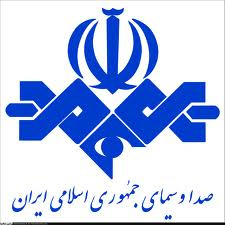Integration of Western Shows and Engagement of Expats

There has often been a cultural/political gap between the Iranians who fled Iran to Western countries (mostly after the 1979 Revolution) and those who remained inside the country. The majority of those who left the country were critical of the Islamic Republic’s policies and thus were considered as “opposition” by the government and those residing inside Iran. However, in the past two decades and especially after the election of President Khatami in 1997 the gap between the two Iranian communities shrank and many who had left Iran started to return and visit and take part in the formation of more moderate policies and the new socio-political environment. During President Ahmadinejad’s era (2005-2013) however, again the political atmosphere was tightened and strict social rules were in place. The entertainment programs and films subsequently were not as amusing and the quality was reducing (due to lack of competition and further limitations held). Thus, many referred to satellite programs for entertainment and foreign soaps and films, etc.
BBC Persian (launched in 2008) and after that Manoto TV (an international free-to-air Persian-language general entertainment channel launched in October 2010) owned by Marjan Abbassi and Kayvan Abbassi went on air and become quite popular over time. It is based in London and its programs include documentaries, films, series, news and reports According to a poll Manoto TV was the most entertaining program which is launched by expats. The programs shown on Manoto TV have been quite inspired by Western programs and present and advocate non-Islamic, Western and Persian trends.
According to a the Financial Times (retrieved 16 April 2013) it has outstripped its closest rivals, BBC Persian, Farsi 1, GEM TV and Voice of America (VOA), based on the number of "likes" each channel receives on its Facebook page. The report reads that as of April 2013, Manoto has had nearly 1.25 million likes on Facebook, twice as many as BBC Persian.
While earlier the two categories of Iranian expats and those inside Iran countered each other in terms of political views and cultural values, etc., now the IRIB (Iranian National Broadcasting) is adopting and mimicking many programs and shows broadcasted by free-to-air entertainment channels which are launched by Iranian expats. According to Tabnak website, the IRIB 3 (Islamic Republic of Iran Broadcasting) is preparing two programs based on the model of programs shown on Manoto TV: one is called “Iranian Dinner” which is based on the “Befarmaeed Sham” TV series and the other is a singing competition based on Googoosh Music Academy show. “Befarmaeed Sham(English: "Dinner Is Served")”, is the Iranian answer to the UK cooking show Come Dine With Me, in which participants host dinner parties and compete for the title of best cook and entertainer. The “Googoosh Music Academy” show helps unknown Persian performers maximize their talent in vocal music and singing, like the American program, American Idol. Thus, The Googoosh Academy show is which presents the “Iranian Idol” is based on the “American Idol TV series.”
While these shows are shown on Manoto TV as entertainment programs, they are inspired by western shows, and reflect western cultural trends. Ancient Persian (un-Islamic trends) cultural ideals and life style which is often against the Islamic Republic’s cultural values are also propagated in these series. The question raised is that whether the Iranian National Broadcasting is easing its standards regarding genuine indigenous and Islamic cultural values or is it merely a strategy to make national programs more attractive and increase their audience.
While competition with satellite shows is a crucial factor in giving permission to produce such entertainment programs, it also shows the government’s new trend of flexibility. Allowing a “Singing Competition” which involves the exhibition of musical instruments goes against the previous redline of IRIB in which manifestation of musical instruments was abandoned. Thus, modifying the two entertainment programs shown on Manoto TV and giving it a more Islamic/indigenous character is a way to compete with the satellite TV programs and further attract audience. Also, by adopting such a new flexible trend (easing Islamic standards), the National TV will have to present a more realistic picture of Iranian life style by which it would in turn have to avoid excessive censorship. Through this competition the IRIB will be further engaging with the current youth life-style and representing the reality of the society.
The new trend of making entertainment programs based on those made abroad by Iranian expats shows that while the redlines and categorizations between those “expats outside” and the values established by “insiders inside the establishment” still exist, there is a dialogue and interaction between the two Iranian communities and the lines are becoming blurred. Thus, the expats are no longer an outsider with a dangerous and vulnerable culture, which is to threaten the Islamic Republic’s ideals but rather their trend could be indigenized and applied inside Iran. This is a positive step in which the two Iranian communities i.e. expats and those inside Iran engage indirectly and aim to bridge the gap. Perhaps the major “differences” are giving way to common grounds illustrated in TV series and entertainment shows.

